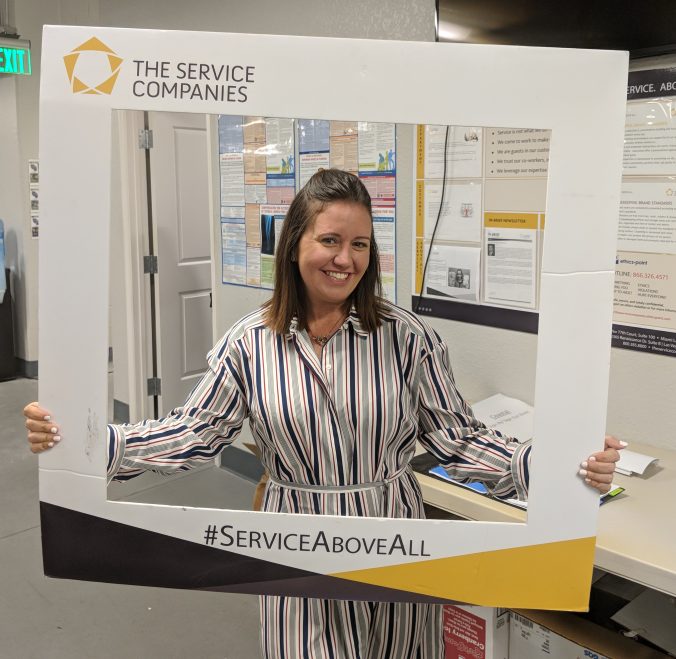Our next Leaders in Service series feature is Stephanie Leger, Corporate Compliance Auditor and support for our hotel, casino and resort properties across the country. Prior to joining our team, Stephanie Leger held a number of roles with The Ritz-Carlton brand, including Hotel Housekeeping Manager, Front Desk Supervisor, and Group Sales Coordinator, and was a Service Evaluator for Forbes Travel Guide, during which time she was trained and certified in over 550 hotel standards and identified service strengths and opportunities for improvement. We have interviewed Stephanie Leger about her time at The Service Companies, her unique background in hotel housekeeping inspections and auditing, and what it takes to succeed and grow within our company. Currently, she is providing operational support and expertise to one of The Service Companies’ luxury hotels in South Beach, Miami.
What roles have you held while with The Service Companies? How long have you been with us? I’ve been with The Service Companies for two years, during which I’ve lead the team in account openings, helped with the expansion of accounts and evaluated how our accounts align with our company and brand standards. At the property I’m with right now in Miami, we’re running about 45 room attendants each day, and I’ve been training new hotel housekeeping associates every day.
What has kept you on our team, and what do you like most about this company? It’s exciting to be part of a growing company that isn’t just growing in one location, but across the country – over 30 states and counting! We’re also expanding into different calibers of hotels, and I like assisting in creating our company standards as we grow.
What does your job entail? I have a variety of job duties. I travel to our new accounts and assist in setting up the hotel housekeeping department and training newly hired team members. Or, I visit existing accounts and audit the housekeeping department by testing associates’ knowledge and spot checking cleanliness in their rooms.
What do you think makes an Executive Housekeeper successful? Having skills in time management, teamwork and flexibility are important for success.
What do you think is the most important part of your role? Checking in on our current accounts and making sure they performing up to our standards, and if they’re not, assisting them to get them where they need to be.
What would you recommend to someone looking to become an Executive Housekeeper? Learn all the duties of each position of your team. Then as a leader, you’ll be able to understand how each position relies on each other to meet the needs of the guest.
What do you love most about your position? I love visiting our various properties and working with the team to take them to the next level.
How do you stay motivated, and how do you motivate your hotel housekeeping teams? To keep myself motivated, I stay positive. My nickname is giggles; I’m always laughing and in a good mood. Housekeeping can be very challenging, but I use my positive outlook to motivate the team. Also, I work side by side with the team to get the task at hand done.
Outside of work, how do you spend your time? What are you passionate about and what do you enjoy doing? I enjoy traveling to destinations I’ve never been before and touring the area. When not on the road for work I like to travel to tropical locations and enjoy the outdoors, hiking and fishing.
At The Service Companies, we understand that our people are what makes our company great and enables us to provide our customers Service. Above All.
No matter what level, property or department, you will find exceptional associates who live and breathe our brand and have helped create a strong corporate culture. In the spirit of honoring the people and leaders within our company, we feature and interview our outstanding associates in our series, Leaders in Service.
The Service Companies is the premier service provider to the hospitality, gaming, healthcare, education, entertainment, and corporate catering industries. We deliver best-in-class cleaning, staffing, and managed labor services using exclusively legal, compliant labor.
Partners in Excellence.


